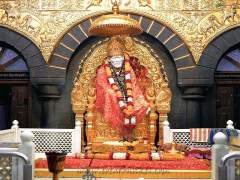It is a fact that in today’s world, we do not give much significance to topics that are not of immediate concern to us. Career, family, health and societal topics prevent us to think beyond these. With lofty goals, Human beings get more and more entangled in the worldly affairs. Often they neglect the age-old questions such as Who are we? What is our purpose? Who made us? that have plagued society and great thinkers since time immemorial. A life shattering experience wakes us up to ponder on the questions of our existence. For some it will be too late to ponder on such questions.
In the past, the quest for existential knowledge has been the realm of thinkers of theology. We now think and analyze in a scientific method with a well-defined process. Today, such thinking has permeated all facets of our lives. Yet, Science is delimiting in its scope and definition. It can only answer questions about manifested world and processes. Much is unknown about factors that permeate within our body and the universe around us. New discoveries and collective thinking enhance Human evolution aiding in a better materialistic life.
Yet, the eternal question remains unanswered. It is this inner quest that leads one to continue to explore. The works of the ancients got passed down spoken. They got modified through the iterations they underwent through time. That does not make them dumb or uneducated. Lack of formal curriculum or powerful instruments does not mean that they lacked intelligence. Available material confirms they could explain a lot of universal phenomena with accuracy.
As answers to our origin remain elusive, it seems that something drives such knowledge. Religious philosophers proclaim that this knowledge is inherent in human beings. Under the tutelage of Spiritual Master, a seeker endeavors to unravel this hidden knowledge.
Will everyone of us be able to reach the end of quest of this so called ultimate knowledge and happiness? It seems, such a question also arose in the mind of one, Damu Anna, over a century ago. Sai Satcharita (Chapter XXV), mentions this story. Once, when I sat at Shri Sai Baba’s feet along with many others, one of the questions I had in my mind was, “There are so many crowding to Sai Baba, Do they all get benefit from Him?” To this, He replied, “Look at the mango tree in blossom. If all the flowers become fruit, what a splendid crop it would be. But do they? Most fall off (either as flowers or as unripe fruits) by wind, etc., few remain”.


